Panelists & Agenda

Friday and Saturday, May 31st - June 1st, 2024
FRIDAY, May 31st, 2024
May 31st will be an “Arts Passport Day” with small groups heading to various arts experiences across the city, with a reception in the evening
SATURDAY, June 1st, 2024
Your Brain on Art
7:30AM Breakfast & Registration
8:15 AM Special Opening

Renée Fleming is renowned as one of the most captivating and versatile sopranos of her generation, captivating audiences worldwide with her stunning vocal artistry and profound interpretations. Her career boasts an extensive repertoire spanning opera, art song, jazz, and contemporary music, earning her the nickname "the people's diva." Fleming's performances have graced the most prestigious stages, including the Metropolitan Opera, Royal Opera House, and Vienna State Opera, where her exquisite voice and magnetic stage presence have left an indelible mark on audiences and critics alike. Beyond her operatic achievements, she has collaborated with diverse artists across genres, showcasing her versatility and commitment to musical innovation. Fleming's contributions to the world of music extend beyond the stage, as she remains a passionate advocate for the arts, education, and cultural diplomacy, using her platform to inspire and engage audiences worldwide.
Offstage, Renée Fleming's influence transcends the concert hall, as she dedicates herself to numerous philanthropic endeavors and educational initiatives. As a sought-after speaker and mentor, she champions the importance of arts education and supports emerging talent through mentorship programs and masterclasses. Fleming's impact on the cultural landscape has been recognized with numerous accolades, including the National Medal of Arts, Grammy Awards, and honorary doctorates from prestigious institutions. Her commitment to artistic excellence and her unwavering dedication to fostering a deeper appreciation for music continue to inspire generations of musicians and audiences around the globe, cementing her legacy as one of the most beloved and influential figures in the world of classical music.
Renée Fleming - Kennedy Center
8:30AM Welcome
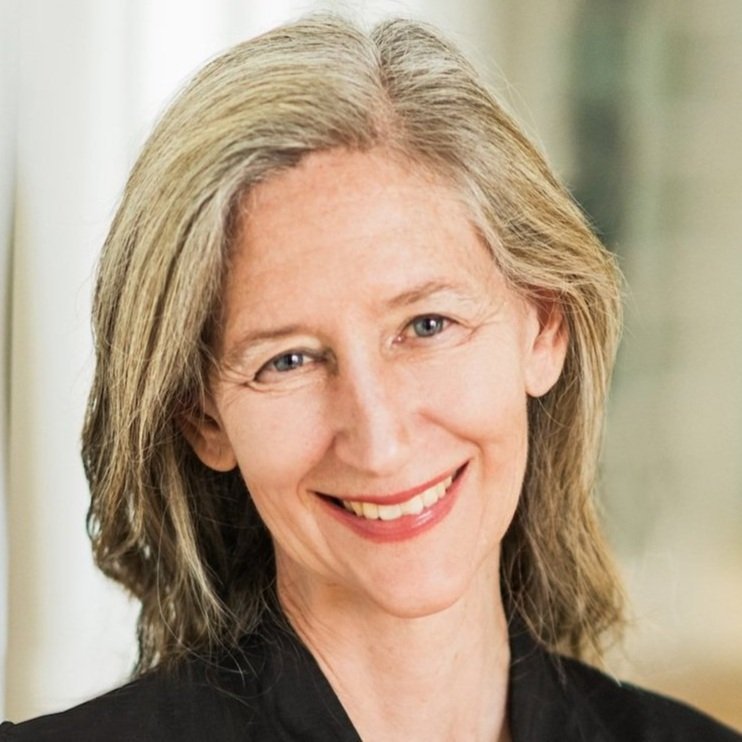
Susan is an accomplished learning expert and program architect. With over 35 years experience in developing effective learning programs rooted in the science of learning, Susan is an active member of the brain sciences research, arts, education and social impact communities. She currently serves as Executive Director of the International Arts and Mind Lab at the Brain Science Institute at Johns Hopkins University. She is also the senior advisor to the Science of Learning Institute at Johns Hopkins University. Susan’s approach to creating effective translational models combine interdisciplinary, evidence-based research with practical, applicable ideas and programs. She brings together scientists, educators, families, psychologists, advocates, policymakers, educational media, technologists, and others to share their perspectives and expertise on education, family life, and other topics. This work has resulted in successful impact-based work.
Susan Magsamen - Hopkins
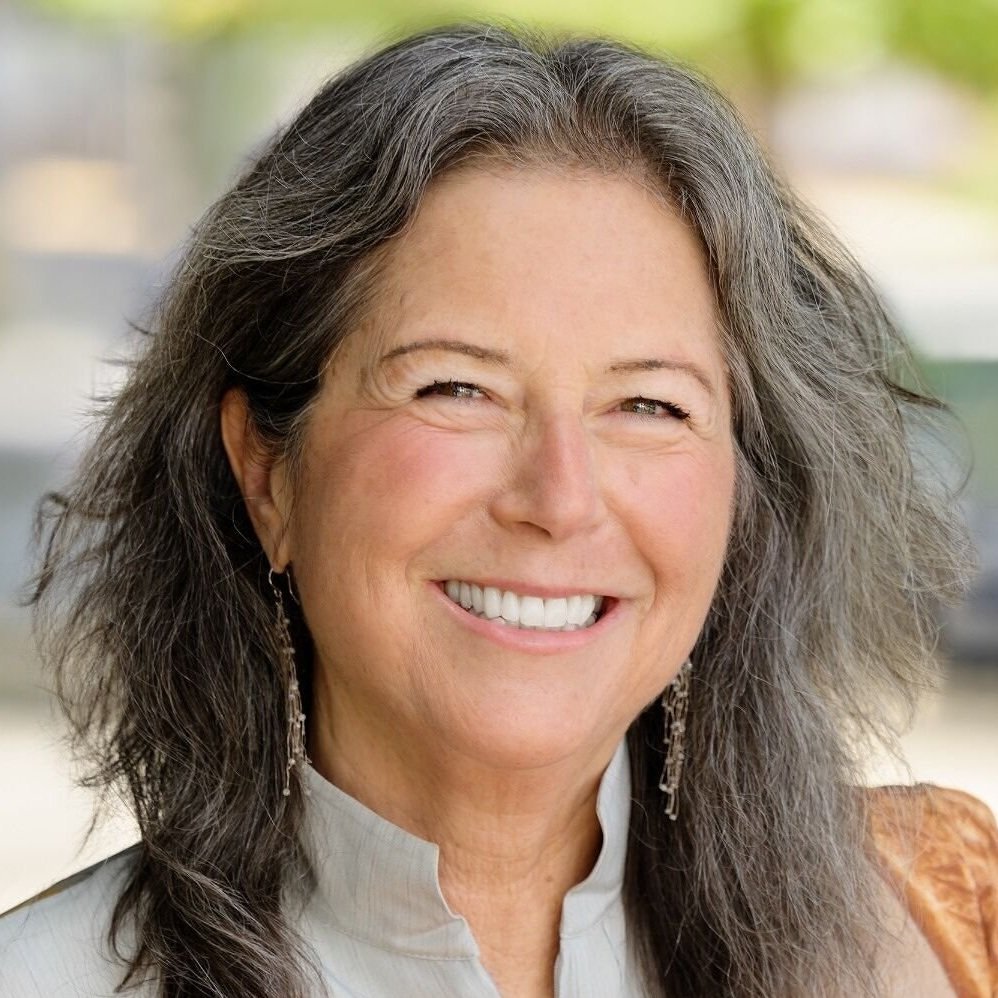
Ivy Ross is an American business executive and jewelry designer. Ross’s metal work in jewelry design is in the permanent collections of 12 international museums, including the Smithsonian in Washington D.C.. Ross is the vice president of hardware design at Google. Ivy and her team created the design language for the Google hardware products that launched in 2017, winning over 240 design awards over the last three years. Business Insider recently named her one of the 15 Most Powerful Women at Google. One of few recognized fine artists to successfully crossover into the business world, Ross is also a keynote speaker, a member of several boards, and has been hailed as a “creative visionary” by the art world. Ivy draws on her background in wide-ranging fields including sound therapy, quantum physics, psychology, and play. One of her most notable innovations is Project Platypus, an experimental design initiative where a core team develops a new brand in an enriched environment over three months; the model has been adopted by Mattel (where she was formerly head of innovation) and Procter & Gamble (on whose design board she served). She also served on the Vatican’s Arts and Technology Commission and judged the 2017 Spark Design Awards, the 2018 Core 77 awards, Dezeen Design Awards 2020, Frame Design Awards 2020, Design Leader of the Year Awards 2020, and the Fast Company Design Awards.
Ivy Ross - Google

Diana Saville is the co-founder and COO of BrainMind and leads BrainMind’s Neuroethics Initiative. She is also cofounder and President of Entrepreneur of Your Own Life, a science and technology entrepreneurship and leadership program for low-income college students, and Director of the Global Leadership Incubator, a partnership with the H. H. Dalai Lama which provides scholarship opportunities for exceptional Tibetan refugees. Formerly the Chief Innovation Officer for the Angiogenesis Foundation, Diana is an expert in creative communication of complex scientific concepts. She develops educational multimedia for labs at MIT, Harvard, and MGH, and organizes international expert summits on scientific and medical topics. Her creative work has been featured in the Museum of Modern Art in New York, the Nobel Museum in Stockholm, at TED conferences, and at the World Economic Forum.
Diana studied biochemical sciences at Harvard College and began her creative work as a scientific animator while pursuing a Ph.D. in molecular and cellular biology at the University of California, Berkeley.
Diana Saville - BrainMind
9:00 AM Session 1: Anatomy of the Arts
Panelists:
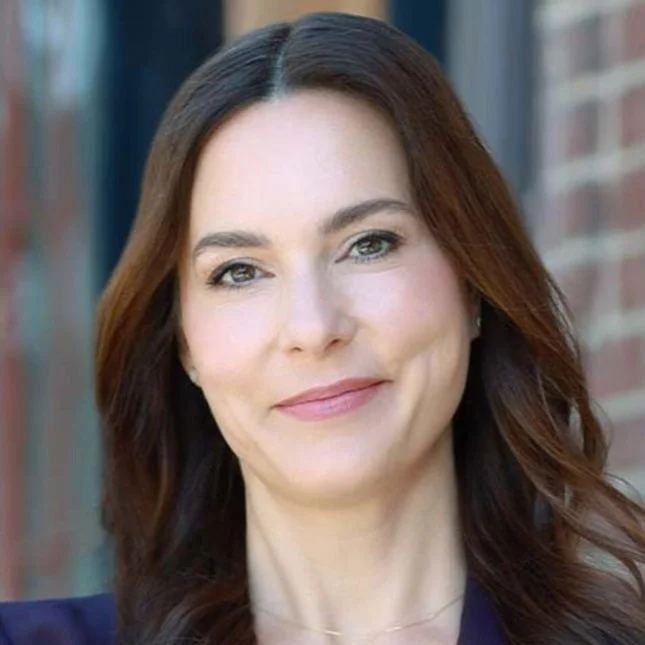
Combining a passion for music with scientific curiosity, Professor Viskontas works at the intersection of art and science. She has published more than 50 original papers and chapters related to the neural basis of memory and creativity. Her scientific work has been featured in Oliver Sacks’ book Musicophilia, Nautilus, Nature: Science Careers, and Discover Magazine. She has also written for MotherJones.com, American Scientist, Vitriol Magazine, and other publications. Her first book, How Music Can Make You Better, was published by Chronicle Books in April, 2019, and within a week was the best-selling music appreciation book on Amazon. She also serves as the Director of Communications for the Sound Health Network, an initiative promoting research and public awareness of the impact of music on health and well-being.
She often gives keynote talks, for organizations as diverse as Genentech, the Dallas Symphony, SXSW, TEDx and Ogilvy, along with frequent invited talks at conferences and academic institutions. Her 24-lecture course Essential Scientific Concepts was released by The Great Courses in 2014. Her second course, Brain Myths Exploded: Lessons from Neuroscience, based on a class she taught at USF, was released in early 2017 and hit #1 on the nonfiction bestseller list at Audible.com. Her third course, How Digital Technology Shapes Us was also based on a class she teaches at USF, and was released in 2020. Her forthcoming course, The Creative Brain, is slated to be released on the Wondrium platform in 2022. Dr. Viskontas's creative work includes stage directing opera. She is the Creative Director of Pasadena Opera, where she directed The Man Who Mistook his Wife for a Hat, a chamber opera based on the famous case study written by Oliver Sacks. Other directing credits include Katya Kabanova with West Edge Opera at Cal Shakes in Orinda in 2021.
Dr. Viskontas is also a sought-after science communicator. She co-hosted the 6-episode docu-series Miracle Detectives on the Oprah Winfrey Network and has appeared on The Oprah Winfrey Show, major radio stations across the US, including several appearances on the NPR program City Arts & Lectures and The Sunday Edition on the CBC in Canada. In 2017, she co-hosted the web series Science in Progress for Tested.com and VRV. She is also the host of the popular science podcast Inquiring Minds, which has more than 13 million downloads. Her other podcast, Cadence: What Music Tells Us About the Mind was a Webby Award Honoree in 2021.
Indre Viskontas - UCSF
Neural Basis of Memory and Creativity, Music & Mental Health

Anjan Chatterjee is Professor of Neurology, Psychology, and Architecture at the University of Pennsylvania and the founding director of the Penn Center for Neuroaesthetics. He received his BA in Philosophy from Haverford College, MD from the University of Pennsylvania and completed his neurology residency at the University of Chicago.
The past Chair of Neurology at Pennsylvania Hospital, Dr. Chatterjee’s clinical practice focuses on patients with cognitive disorders. His research addresses neuroaesthetics, spatial cognition, language, and neuroethics. He wrote The Aesthetic Brain: How we evolved to desire beauty and enjoy art and co-edited: Neuroethics in Practice: Mind, medicine, and society, The Roots of Cognitive Neuroscience: Behavioral neurology and neuropsychology and the forthcoming Brain, Beauty, and Art: Bringing Neuroaesthetics in Focus. His editorial services include: American Journal of Bioethics: Neuroscience, Behavioural Neurology, Cognitive and Behavioral Neurology, Empirical Studies of the Arts, European Neurology, Journal of Cognitive Neuroscience, Journal of Alzheimer’s Disease, Journal of the International Neuropsychological Society, European Neurology, Neuropsychology, and The Psychology of Aesthetics, Creativity, and the Arts. He received the Norman Geschwind Prize in Behavioral and Cognitive Neurology by the American Academy of Neurology and the Rudolph Arnheim Prize for contributions to Psychology and the Arts by the American Psychological Association.
Dr. Chatterjee is a founding member of the Board of Governors of the Neuroethics Society, the past President of the International Association of Empirical Aesthetics, and the Behavioral and Cognitive Neurology Society. He is on the Board of the Global Wellness Institute, and has served on the Boards of The College of Physicians of Philadelphia, Haverford College, the Norris Square Neighborhood Project and the Associated Services for the Blind and Visually Impaired.
Anjan Chatergee - UPenn
Spatial Cognition, Language, Neuroethics, Neuroaesthetics
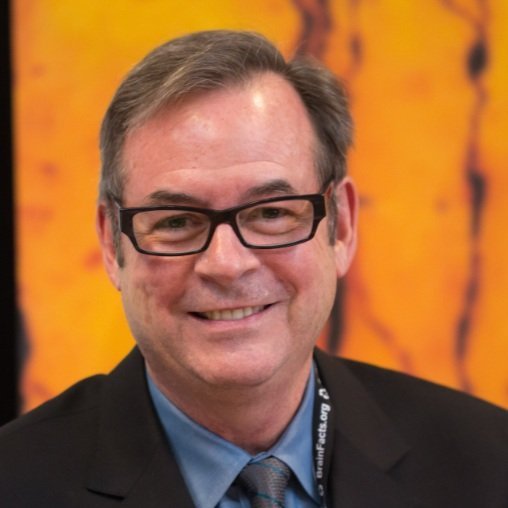
Dr. Richard Huganir is a professor of neuroscience, biological chemistry and pharmacology and molecular science at the Johns Hopkins University School of Medicine. Dr. Huganir’s research focuses on molecular mechanisms that modulate the communication between neurons in the brain.
He serves as the director of the Solomon H. Snyder Department of Neuroscience at the Johns Hopkins University School of Medicine.
Dr. Huganir and his team focus their efforts on researching the mechanisms that underlie the regulation of the glutamate receptors, the major excitatory neurotransmitter receptors in the brain. These receptors are neurotransmitter-dependent ion channels that allow ions to pass through the neuronal cell membrane, resulting in the excitation of neuronal activity.
He received his undergraduate degree in biochemistry from Vassar College and earned his Ph.D. in biochemistry, molecular and cell biology from Cornell University. He was a postdoctoral fellow with the Nobel Laureate, Dr. Paul Greengard, at Yale University School of Medicine. Dr. Huganir then moved to the Rockefeller University where he was an assistant professor of molecular and cellular neurobiology from 1984-1988. Dr. Huganir joined the Johns Hopkins faculty in 1988.
Dr. Huganir received the Young Investigator Award from the Society for Neuroscience and the Santiago Grisolia Award, among others. He is a member of the American Academy of Arts and Sciences and the National Academy of Sciences and a fellow of the American Association for the Advancement of Science. Dr. Huganir has published over 200 papers in peer-reviewed journals.
Rick Huganir - Hopkins
Arts Effect on Synaptic Transmission and Neuroplasticity
10:00 AM Session 2: Mental Wellbeing and Health
Panelists:

Anjan Chatterjee is Professor of Neurology, Psychology, and Architecture at the University of Pennsylvania and the founding director of the Penn Center for Neuroaesthetics. He received his BA in Philosophy from Haverford College, MD from the University of Pennsylvania and completed his neurology residency at the University of Chicago.
The past Chair of Neurology at Pennsylvania Hospital, Dr. Chatterjee’s clinical practice focuses on patients with cognitive disorders. His research addresses neuroaesthetics, spatial cognition, language, and neuroethics. He wrote The Aesthetic Brain: How we evolved to desire beauty and enjoy art and co-edited: Neuroethics in Practice: Mind, medicine, and society, The Roots of Cognitive Neuroscience: Behavioral neurology and neuropsychology and the forthcoming Brain, Beauty, and Art: Bringing Neuroaesthetics in Focus. His editorial services include: American Journal of Bioethics: Neuroscience, Behavioural Neurology, Cognitive and Behavioral Neurology, Empirical Studies of the Arts, European Neurology, Journal of Cognitive Neuroscience, Journal of Alzheimer’s Disease, Journal of the International Neuropsychological Society, European Neurology, Neuropsychology, and The Psychology of Aesthetics, Creativity, and the Arts. He received the Norman Geschwind Prize in Behavioral and Cognitive Neurology by the American Academy of Neurology and the Rudolph Arnheim Prize for contributions to Psychology and the Arts by the American Psychological Association.
Dr. Chatterjee is a founding member of the Board of Governors of the Neuroethics Society, the past President of the International Association of Empirical Aesthetics, and the Behavioral and Cognitive Neurology Society. He is on the Board of the Global Wellness Institute, and has served on the Boards of The College of Physicians of Philadelphia, Haverford College, the Norris Square Neighborhood Project and the Associated Services for the Blind and Visually Impaired.Anjan Chatterjee is Professor of Neurology, Psychology, and Architecture at the University of Pennsylvania and the founding director of the Penn Center for Neuroaesthetics. He received his BA in Philosophy from Haverford College, MD from the University of Pennsylvania and completed his neurology residency at the University of Chicago. The past Chair of Neurology at Pennsylvania Hospital, Dr. Chatterjee’s clinical practice focuses on patients with cognitive disorders. His research addresses neuroaesthetics, spatial cognition, language, and neuroethics. He wrote The Aesthetic Brain: How we evolved to desire beauty and enjoy art and co-edited: Neuroethics in Practice: Mind, medicine, and society, The Roots of Cognitive Neuroscience: Behavioral neurology and neuropsychology and the forthcoming Brain, Beauty, and Art: Bringing Neuroaesthetics in Focus. His editorial services include: American Journal of Bioethics: Neuroscience, Behavioural Neurology, Cognitive and Behavioral Neurology, Empirical Studies of the Arts, European Neurology, Journal of Cognitive Neuroscience, Journal of Alzheimer’s Disease, Journal of the International Neuropsychological Society, European Neurology, Neuropsychology, and The Psychology of Aesthetics, Creativity, and the Arts. He received the Norman Geschwind Prize in Behavioral and Cognitive Neurology by the American Academy of Neurology and the Rudolph Arnheim Prize for contributions to Psychology and the Arts by the American Psychological Association. Dr. Chatterjee is a founding member of the Board of Governors of the Neuroethics Society, the past President of the International Association of Empirical Aesthetics, and the Behavioral and Cognitive Neurology Society. He is on the Board of the Global Wellness Institute, and has served on the Boards of The College of Physicians of Philadelphia, Haverford College, the Norris Square Neighborhood Project and the Associated Services for the Blind and Visually Impaired.
Chris Appleton - Art Pharmacy
Prescription Art, Mental Health
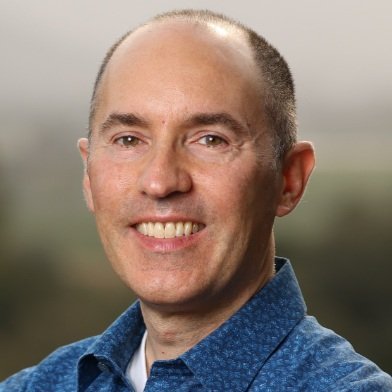
As President of One Mind, Brandon Staglin channels his deep experience in communications, advocacy, and personal schizophrenia recovery to drive brain health research, services, and media to heal lives. His best-known advocacy work has been for the growth of science-driven, large-scale. continuously improving prevention and early intervention services for youth facing serious psychiatric illness. He has published numerous articles in well-known journals and earned numerous advocacy awards. Brandon serves on councils for the World Economic Forum, the Foundation for the National Institutes of Health, the California Department of Health Care Services, Mindstrong Health, and Stanford University’s Prodrome and Early Psychosis Program Network, and is a member of The Stability Network. He earned a Master of Science in Healthcare Administration and Interprofessional Leadership from UCSF in September 2018, and Bachelor of Arts degrees in Engineering Sciences and Anthropology from Dartmouth College in 1993.
Brandon’s lived experience with schizophrenia makes him grateful to be enjoying life in health and happy every day he can contribute to the health of others.
Brandon Staglin - One Mind
Brain Health Research, Psychiatric Disorder Advocacy
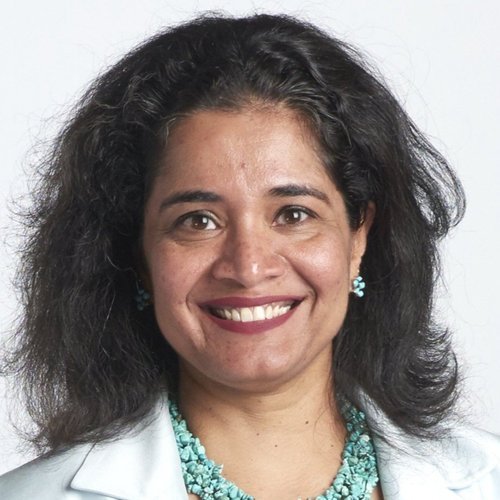
Dr. Girija Kaimal, (EdD, MA, ATR-BC) is an Associate Professor in the PhD Program in Creative Arts Therapies at the Drexel University College of Nursing and Health Professions and Assistant Dean for the Division of Human Development and Health Administration. In her Health, Arts, Learning and Evaluation (HALE) research lab, she examines physiological and psychological outcomes of creative visual self-expression. Girija currently leads studies examining arts-based approaches to health among cancer caregivers, active duty military service members and veterans (Currently funded by the US Department of Defense and the National Endowment for the Arts). She has led longitudinal evaluation research studies examining arts-based approaches to school leadership development and teacher incentives, and, won national awards for her research. Girija has served on the Board of Directors and is now President of the American Art Therapy Association. She is also serves as an advisor and editorial board member of several arts and health journals and, is a practicing visual artist. Her art explores the intersection of identity and representation of emotion.
Girija Kaimal - Drexel University
Creative Forces, Health outcomes of Visual and Narrative Self-Expression
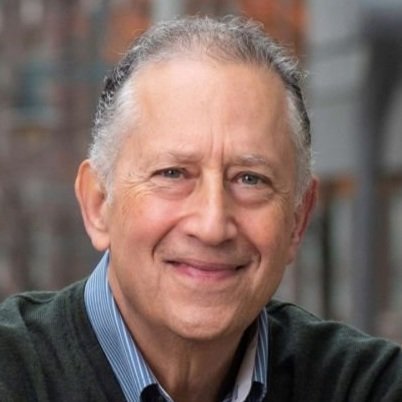
Jeremy Nobel, MD, MPH, is on the faculty of the Harvard Medical School and the Harvard T.H. Chan School of Public Health. His teaching and research activities focus on population health, social determinants of health, and the design and evaluation of health improvement intervention programs. With the unique background and training required to bridge scientific and humanistic disciplines, he has contributed to significant explorations into how creative expression mitigates illness and enhances wellbeing. He has become a prominent advocate for creative engagement, ancillary to and integrated with traditional medical care, as a pathway to healing. Dr. Nobel’s book published by Penguin Random House in 2023 “Project UnLonely: Healing Our Crisis of Disconnection” unpacks our personal and national experience of loneliness to discover its roots and take steps to find comfort and connection. He clarifies how meaningful connection can be nourished and sustained, and he reveals that an important component of the healing process is engaging in creativity. Dr. Nobel graduated magna cum laude from Princeton University within the Science and Human Affairs program. He received his medical education at the University of Pennsylvania and completed his internal medicine residency at the Beth Israel Hospital, Boston. Board-certified in both Preventive Medicine and Internal Medicine, Dr. Nobel also holds Master’s Degrees in Epidemiology and Health Policy from the Harvard T.H. Chan School of Public Health.
Jeremy Nobel - Foundation of Arts and Healing
Mitigation of Illness Through Creative Expression
11:00 AM Break
11:30 AM Session 3: Physical Health
Panelists:

Dr. Tanzi is the Director of the Genetics and Aging Research Unit, Director of the Henry and Allison McCance Center for Brain Health, and Co-Director of the MassGeneral Institute for Neurodegenerative Disease at Massachusetts General Hospital. He also serves as the Joseph P. and Rose F. Kennedy Professor of Neurology at Harvard Medical School.
Dr. Tanzi co-discovered the first Alzheimer’s disease (AD) gene, the amyloid precursor protein (APP) gene, and the two other early-onset familial AD genes, presenilin 1 and presenilin 2. As leader of the Cure Alzheimer’s Fund Alzheimer’s Genome Project, Dr. Tanzi identified several other AD genes, including CD33, the first AD gene shown to regulate neuroinflammation in AD. He also discovered the Wilson’s disease gene and contributed to the identification of several other neurological disease genes, including the first familial ALS gene, SOD1.
Dr. Tanzi’s team was the first to use human stem cells to create three-dimensional mini human brain organoids and 3D neural-glial culture models of AD, dubbed “Alzheimer’s-in-a-Dish”. These models were the first to recapitulate all three key AD pathological hallmarks and have made drug screening exponentially faster and cheaper. He and his team have successfully used these organoids to screen for approved drugs and natural products that can be repurposed to treat AD brain pathology. Combinations of these drugs are now being tested in AD clinical trials. Dr. Tanzi has help to develop several novel therapies for AD including gamma secretase modulators targeting amyloid pathology, for which a phase 1 clinical trial is being prepared. Dr. Tanzi has helped establish numerous biotech companies, including Amylyx, which developed the newly approved ALS drug, Relyvrio™. Dr. Tanzi also recently discovered that beta-amyloid plays a functional role in the brain as a host-defense peptide, leading to the “antimicrobial protection hypothesis” of AD.
Rudy Tanzi - Harvard
Brain Health and Aging, Alzheimer’s Disease
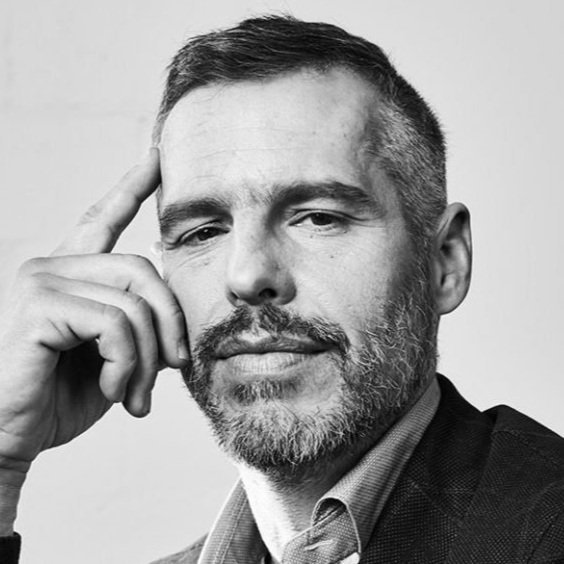
BJ’s career has been dedicated to moving healthcare towards a human centered approach, on a policy as well as a personal level. Led by his own experiences as a patient, BJ advocates for the roles of our senses, community and presence in designing a better ending. His interests are in working across disciplines to affect broad-based culture change, cultivating a civic model for aging and dying and furthering the message that suffering and dying are fundamental and intrinsic aspects of life.
BJ Miller - Mettle Health
Palliative Care, Resilience, Hoslisitc Well-being

BJ’s career has been dedicated to moving healthcare towards a human centered approach, on a policy as well as a personal level. Led by his own experiences as a patient, BJ advocates for the roles of our senses, community and presence in designing a better ending. His interests are in working across disciplines to affect broad-based culture change, cultivating a civic model for aging and dying and furthering the message that suffering and dying are fundamental and intrinsic aspects of life.
John Krakauer - Hopkins
Virtual Reality Stroke Rehabilitation, Motor Learning
Immersion:

A visionary executive and serial entrepreneur, JP Labrosse has a proven track record of building and scaling global businesses across diverse industries. With four successful startup acquisitions under his belt, including the landmark acquisition of Within / Supernatural by Meta, he is recognized for his exceptional leadership and strategic foresight. Notably, his tenure at Apple as an Engineering Team Lead saw him spearhead the development of groundbreaking products like the first iPod shuffle and clickwheel iPod, driving billions in sales. Labrosse is also a prolific inventor with 30 patents across ten industries, contributing significantly to advancements in solar technology and human interface design. Committed to creating scalable positive impact, he continues to push the boundaries of innovation, leveraging his expertise as a product strategist, marketer, and empathic solution designer to drive meaningful change in the world.
JP Labrosse - Supernatural
Serial Entrepreneur, Innovation Leader, Technologist
12:30 PM Lunch with panelists
2:00 PM Session 4: Learning
Panelists:
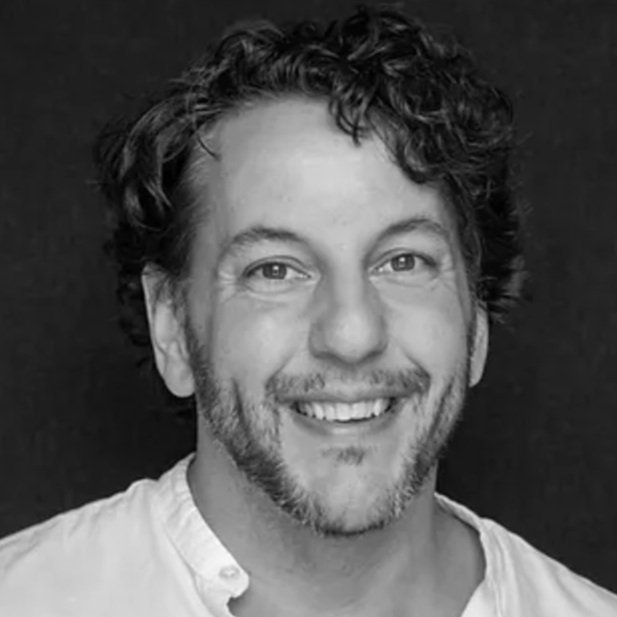
Tom Sweitzer – MTT, MT-BC – Tom is Co-Founder, Creative Director and Head of Music Therapy at A Place to Be, a non-profit organization serving over 300 families weekly, offering Music Therapy in Northern Virginia. Tom holds a B.F.A. in Music Theater, a Graduate Certificate in Music Therapy from Shenandoah University and a Master’s in Music Therapy from Berklee College of Music. Tom has created several therapeutic musical productions that focus on acceptance, diversity and empathy that toured schools and beyond. His Rock Opera about Suicide prevention, A Will to Survive, performed at the Terrace Theater at The Kennedy Center. He has collaborated with Wolf Trap Performing Arts Center, writing and directing their first fully-inclusive and disability focused production for the children’s theater and education department. He is an adjunct professor at Shenandoah University and consults as a Music Therapist across the country.
Tom Sweitzer - A Place to Be
Music Therapy, Theater for Healing, Disability Awareness

Daniel J. Levitin is an award-winning neuroscientist, musician, and best-selling author. His research encompasses music, the brain, health, productivity and creativity.
Levitin has published more than 300 articles, in journals including Science, Nature, PNAS, The New Yorker, The Atlantic, and The Wall Street Journal. His research has been featured over 1800 times in the popular press, including 17 articles in The New York Times, and in The London Times, Scientific American, and Rolling Stone. He is a frequent guest on NPR and CBC Radio and has appeared on Good Morning America, The Today Show, CBS This Morning, and CNN. His TED talk is among the most popular of all time.
He is the author of four New York Times bestselling books: This Is Your Brain On Music, The World in Six Songs, The Organized Mind and Successful Aging, as well as the international bestseller A Field Guide to Lies. A popular public speaker, he has given presentations on the floor of Parliament in London, to the U.S. Congress, Microsoft, Google, and Amazon. He has consulted for a number of companies including Apple, Booz-Allen, Microsoft, the United States Navy, Sonos, Philips, Sony, Fender, and AT&T.
Dr. Levitin earned his B.A. from Stanford in Cognitive Science, his M.Sc. and Ph.D. in Cognitive Psychology with a Ph.D. minor in Music Technology from the University of Oregon, and completed post-doctoral training at Stanford University Medical School and UC Berkeley in Neuroimaging and Perception.
As a musician (tenor saxophone, guitar, vocals and bass), he has performed with Mel Tormé, David Byrne, Rosanne Cash, Sting, Bobby McFerrin, Victor Wooten and Tom Scott. Levitin has produced and consulted on albums by artists including Stevie Wonder, Steely Dan, Joni Mitchell and on the films Good Will Hunting and Pulp Fiction, and has been awarded 17 gold and platinum records.
Levitin taught at Stanford in the Departments of Computer Science, Psychology, History of Science, and Music, and has been a Visiting Professor at Dartmouth, and UC Berkeley. He is currently the Founding Dean of Arts & Humanities at the Minerva Schools at the Keck Graduate Institute, San Francisco, California, and James McGill Professor Emeritus of Psychology, Neuroscience and Music at McGill University.
Dan Levitin - McGill University
Neurosceince of Music, Cognitive and Perceptual Processing

Ellen Galinsky is the President of Families and Work Institute (FWI), an organization she co-founded in 1989. She is the elected President of the Work and Family Researchers Network, a network of several thousand researchers globally and additionally serves as a senior advisor to the Immediate Office of the Assistant Secretary of Youth Mental Health at the Administration for Children and Families, U.S. Department of Health and Human Services. Between March 2016 and September 2022, she served as Chief Science Officer of the Bezos Family Foundation. Before co-founding FWI, she spent more than two decades at the Bank Street College of Education. Her life’s work revolves identifying important societal questions as they emerge, conducting research to seek answers, and turning the findings into action. She strives to be ahead of the curve, to address compelling issues, and to provide rigorous data that can affect our lives. Over her career, her research has focused on work-life, children’s development, youth voice, child-care, parent-professional relationship, and parental development. Galinsky is the author of Mind in the Making, a best-selling book on early learning that the New York Times called “an iconic parenting manual,” and Judy Woodruff of the PBS NewsHour named “must reading for everyone who cares about America’s fate in the 21st Century.” Her book on adolescence, The Breakthrough Years, will be published in March 2024 and involved nine-years of research, including three original studies. Adam Grant, author of Hidden Potential says that “it smashes common stereotypes of teens and tweens,” Dan Siegel, author The Whole Brain Child calls it a “masterpiece;” Mitch Prinstein of the American Psychological Association says it is “a tour de force. Don’t attempt to raise a teenager without reading this book,” while Rich Lerner of Tufts University says it is a “superb contribution to science and society.” She is also the author of 90 books/reports and 360 articles for books, academic journals, magazines, and the Web.
Ellen Galinsky - FWI
Work-Life Integration, Social and Emotional Learning
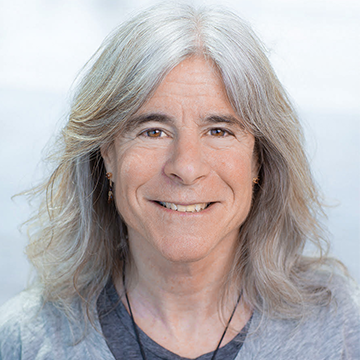
Nina Kraus, Ph.D., is a scientist, inventor, and amateur musician who studies the biology of auditory learning. She began her career measuring responses from single auditory neurons and was one of the first to show that the adult nervous system has the potential for reorganization following learning; these insights in basic biology galvanized her to investigate auditory learning in humans.
In her deep examination of sound and the brain, Kraus makes the case for the far-reaching impact of sound, showing how hearing engages how we think, feel, move, and combine our senses. Through auditory neuroscience, she discovered how the sounds of our lives engage our neurological health for better (musicians, bilinguals) and for worse (language disorders, autism and other developmental disorders, concussion, HIV, hearing loss). Having witnessed first-hand (in single neurons and humans) how hearing can change the brain, affecting, more than any other sense, our interactions with others, she places a premium on communicating the scientific rationale for engaging in activities to strengthen the hearing brain and our sonic world. The cornerstone of her research is the ambition to improve social communication.
Her book OF SOUND MIND How Our Brain Constructs a Meaningful Sonic World communicates these principles in a narrative digestible to any interested reader. OF SOUND MIND is Kraus’ love letter to sound, how sound connects us, its biological impact on making us us, and how it affects the world we live in.
Never having accepted a lack of technology as a roadblock to scientific discovery, Kraus has invented new ways to measure the biology of sound processing in humans that provide unprecedented precision in indexing brain function. By finding connections across seemingly disparate disciplines, she is pushing science beyond the traditional laboratory, in schools, community centers, athletic facilities, and clinics, and advocating for best practices in education, health, and social policy.
Nina Krauss-Northwestern
Auditory Learning, Power and Neurobiological Basis of Sound
3:00 PM Session 5: Flourishing
Panelists:

Dr. Charles Limb is the Francis A. Sooy Professor of Otolaryngology – Head and Neck Surgery and the Chief of the Division of Otology, Neurotology and Skull Base Surgery at University of California, San Francisco. He is the Director of the Douglas Grant Cochlear Implant Center at UCSF and he is the Medical Director of Cochlear Implantation at UCSF Benioff Children's Hospital, Oakland. He also holds a joint appointment in the Department of Neurosurgery.
Dr. Limb received his undergraduate degree at Harvard University and his medical training at Yale University School of Medicine, followed by surgical residency and fellowship in Otolaryngology – Head and Neck Surgery at Johns Hopkins Hospital. He completed a postdoctoral research fellowship at the Center for Hearing Sciences at Johns Hopkins with Dr. David Ryugo studying the development of the auditory brainstem, and a second postdoctoral fellowship at the National Institutes of Health studying neural mechanisms of musical improvisation and perception using functional neuroimaging methods. He was at Johns Hopkins Hospital from 1996 to 2015, where he was Associate Professor of Otolaryngology – Head and Neck Surgery and a Faculty Member at the Peabody Conservatory of Music and School of Education at Johns Hopkins University. He left in 2015 to join the UCSF Department of Otolaryngology Head and Neck Surgery.
Dr. Limb’s expertise covers the full scope of otology and neurotology, with a focus on the treatment of hearing loss and auditory disorders. He specializes in all surgery of the temporal bone, with particular expertise in acoustic neuroma surgery, cochlear implant surgery, implantable hearing aids, stapes surgery, cholesteatoma surgery, and cancers of the ear. His current areas of research focus on the study of the neural basis of musical creativity as well as the study of music perception in deaf individuals with cochlear implants. He is the past Editor-in-Chief of Trends in Amplification (now Trends in Hearing), the only journal explicitly focused on auditory amplification devices and hearing aids, and an Editorial Board member of the journals Otology and Neurotology and Music and Medicine. His work has received international attention and has been featured by National Public Radio, TED, National Geographic, the New York Times, PBS, CNN, Scientific American, the British Broadcasting Company, the Smithsonian Institute, the Library of Congress, the Sundance Film Festival, Canadian Broadcasting Company, Baltimore Symphony Orchestra and the American Museum of Natural History.
Charles Limb - UCSF
Neurotology, Acoustic Neuroma, Musical Perception

Dr. Margaret Smith Chisolm is Professor of Psychiatry and Behavioral Sciences and Director of the Paul McHugh Program for Human Flourishing at the Johns Hopkins University School of Medicine. She has a secondary appointment in the department of Medicine. She has over three decades of clinical experience in both general and specialized psychiatric outpatient and inpatient settings and has served as PI or co-investigator on multiple NIDA- and Foundation-funded research projects. She has published over 100 scientific, clinical, and medical education articles and book chapters on substance use in pregnancy and other psychiatric disorders, as well as the use of social media and the arts/humanities in medicine. She is an author of a psychiatric textbook and a book on psychiatric illness for patients and families ("From Survive to Thrive: Living Your Best Life with Mental Illness"). Dr. Chisolm is a member of the Miller-Coulson Academy of Clinical Excellence, has been twice recognized as an Arnold P. Gold Foundation Humanism Scholar, and is the recipient of the 2014 Johns Hopkins University Alumni Association Excellence in Teaching Award. She is a Fellow in the Association of European Medical Education, the Association for Academic Psychiatry, and the American College of Psychiatrists. She was selected to participate as a Design-Partner in the Art Museum-based Health Professions Education fellowship sponsored by the Cambridge Health Alliance and the Harvard Macy Institute, to which she returned as associate faculty. Dr. Chisolm's current focus of education research is on the integration of the arts and humanities in health professions education across the learning continuum.
Margaret Chisolm - Hopkins
Museum-Based Education for the Flourishing of Health Professionals

Nicholas Wilton was born in San Francisco, California and spent his youth exploring the wilderness areas of Marin County. As a teenager he studied design with the German contemporary glass artist Ludwig Schaffrath, who catalyzed his ongoing passion for art making. Nicholas studied art at the College of Creative Studies in Santa Barbara and then went on to receive his BFA from Art Center College of Design in Pasadena. In addition to gallery exhibitions and the inclusion in numerous private and corporate collections in both the United States and Europe, Wilton’s paintings have been used on the covers of the national bestseller “The Four Agreements” by Don Miguel Ruiz, and Brene Brown’s “The Gift of Imperfection”. Recently, the US Postal Service issued a stamp featuring Wilton’s artwork.
Nicholas is the founder of the Art2Life Creativity workshops and classes. This highly effective system of teaching returns authenticity, spontaneity and joy back into the creative process. Nicholas also has established the Creative Visionary Mentoring Program, which offers artistic, business and creative coaching to artists. He speaks and writes extensively on the subject of creativity, purpose and inspiration.
Nicholas Wilton - Art2Life
Visual Art, Authenticity in the Creative Process, Purpose

By illuminating these principles of perception he has helped individuals and companies transform their approach to creativity and innovation.
Beau is a three-time main stage TED speaker. He has spoken at the G8, Google’s Zeitgest, Wired, Oslo Freedom Forum, Big Think and contributed to the BBC, National Geographic, Netflix and PBS.
Beau is also the founder of the world’s first neuro-design studio, Lab of Misfits. Part lab, part creative studio, Lab of Misfits takes a disruptive approach to research, partnering with brands to blend science, art and performance to explore pivotal principles in current culture. Their "experiential experiments" invite consumers to engage with brands and offer brands science-backed insights that foster innovation.
Previous and current Lab of Misfits partnerships include: Cirque du Soleil (awe and wonder), L’Oreal (empowerment), The Charles Koch Institute (tolerance), BCW Public Relations (insight) and The London Science Museum (curiosity).
Beau's latest book, Deviate: The Science of Seeing Differently, explores the surprising science of creativity and unveils the unexpected relationship between perception, reality and innovation.
Beau Lotto - Lab of Misfits
Perception Dynamics, Embodied Cognition, Transforming Creativity
4:00 PM Break
4:30 PM Session 6: Building Community
Panelists:
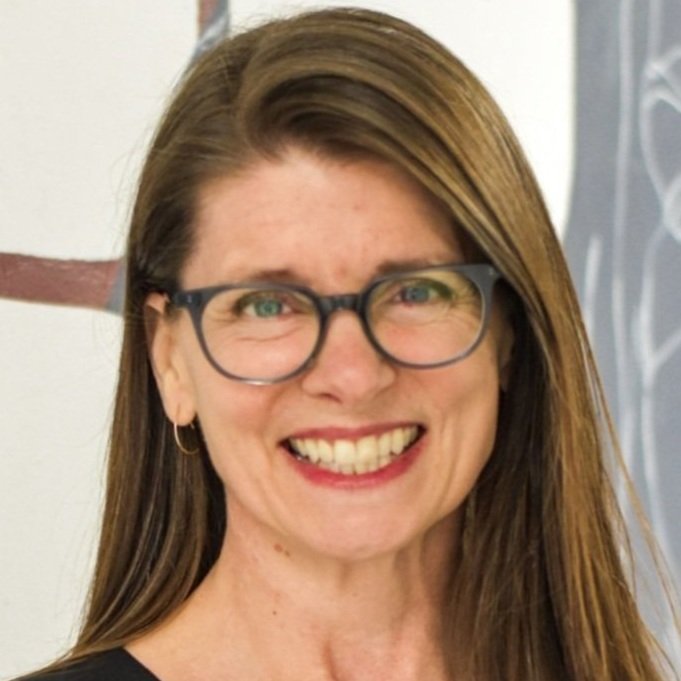
Jill Sonke, PhD, is research director in the Center for Arts in Medicine at the University of Florida (UF), director of national research and impact for the One Nation/One Project initiative, co-director of the EpiArts Lab (a National Endowment for the Arts Research Lab at UF), and currently serves as Senior Advisor to the CDC Vaccine Confidence and Demand Team on the COVID-19 Vaccine Confidence Task Force. She is an affiliated faculty member in the UF School of Theatre & Dance, Norman Fixel Institute for Neurological Diseases, the Center for African Studies, the STEM Translational Communication Center, and the One Health Center, and a consulting editor for Health Promotion Practice journal.
Jill studied dance at Interlochen Arts Academy, the Florida State University, in London, Paris and Athens with teachers of the Horton and Duncan techniques including Bella Lewitsky, Lynda Davis, Milton Meyers, Joy Kellman, Lori Belilove, Julia Levine and Hortense Koluris. She has been a principal dancer and soloist with Lori Belilove & the Isadora Duncan Dance Company in New York and a guest performer and choreographer with Dance Alive! and Stuart Pimsler Dance and Theatre.
With 27+ years of experience and leadership in the field of arts in health, Jill is active in research, teaching, and international cultural exchange. She is a mixed methods researcher with a current focus on population-level health outcomes associated with arts and cultural participation, arts in public health, and the arts in health communication. She is the recipient of a New Forms Florida Fellowship Award, a State of Florida Individual Artist Fellowship Award, an Excellence in Teaching Award from the National Institute for Staff and Organizational Development, a UF Internationalizing the Curriculum Award, a UF Most Outstanding Service Learning Faculty Award, a UF Public Health Champions award, a UF Cross-Campus Faculty Entrepreneur of the Year Award, and over 300 grants for her programs and research at the University of Florida.
Jill Sonke - University of Florida
Community Health, Medicinal Art, Synaptic Creativity

Michael Murphy co-founded MASS Design Group in 2007 after an invitation from Dr. Paul Farmer to design the Butaro District Hospital in Rwanda. He served as the organization’s President and Executive Director until 2022 before leaving to focus on new ventures. During Michael’s tenure as executive director, MASS grew from a small group of classmates from the Harvard School of Design to an organization with hundreds of employees, designing and building projects in over a dozen countries across the world, including the Butaro District Hospital in Rwanda, the Memorial for Peace and Justice in Montgomery, Alabama and the Embrace Memorial on the Boston Common. An important element in that success was taking full advantage of MASS’s nonprofit status to secure donations from like-minded philanthropists and using that support to help seed projects that might not have happened otherwise. Michael also placed a priority on important research projects, including those focused on the Public Monument, architecture’s role in Restorative Justice, and exploring the shrinking “Fringe” city in America, inspired by his hometown of Poughkeepsie, NY. During Michael’s tenure, MASS was the recipient of numerous awards, including the AIA Firm of the Year Award in 2022, Wall Street Journal Magazine’s Innovator of the Year for 2021, The American Arts and Letters Award, and the Cooper Hewitt National Design Award. Michael has been personally honored by the Royal Institute of British Architects as an International FRIBA and has held fellowships and advisory roles with the Emerson Collective, the Aspen Institute, The Santa Fe Art institute, and the Clinton Global Initiative. He has lectured around the world, advocating for a different approach to architecture, including as a keynote speaker for the 2017 AIA Annual Conference and the presenter of 2016 TED Talk “Architecture that Heals”, which has received over 1.8 million views to date. Michael also authored the book “Architecture of Health” with Jeffrey Mansfield and MASS Design Group, which examines how our built world was shaped by disease and reveals how historical examples can offer us both caution and inspiration. Michael holds an M.Arch from Harvard’s Graduate School of Design and a Bachelors in English Language and Literature from the University of Chicago. He has held teaching positions at Harvard University, The University of Michigan, Columbia University, Cornell University and others. Currently, he is the Thomas Ventulett Chair of Architecture at the Georgia Institute of Technology.
Michael Murphy - Mass Design Group
Intentional Spaces, Environmental Impact on Health
5:30 PM Session 7: Future of the Arts and How do We Get There
Panelists:

Renée Fleming is renowned as one of the most captivating and versatile sopranos of her generation, captivating audiences worldwide with her stunning vocal artistry and profound interpretations. Her career boasts an extensive repertoire spanning opera, art song, jazz, and contemporary music, earning her the nickname "the people's diva." Fleming's performances have graced the most prestigious stages, including the Metropolitan Opera, Royal Opera House, and Vienna State Opera, where her exquisite voice and magnetic stage presence have left an indelible mark on audiences and critics alike. Beyond her operatic achievements, she has collaborated with diverse artists across genres, showcasing her versatility and commitment to musical innovation. Fleming's contributions to the world of music extend beyond the stage, as she remains a passionate advocate for the arts, education, and cultural diplomacy, using her platform to inspire and engage audiences worldwide.
Offstage, Renée Fleming's influence transcends the concert hall, as she dedicates herself to numerous philanthropic endeavors and educational initiatives. As a sought-after speaker and mentor, she champions the importance of arts education and supports emerging talent through mentorship programs and masterclasses. Fleming's impact on the cultural landscape has been recognized with numerous accolades, including the National Medal of Arts, Grammy Awards, and honorary doctorates from prestigious institutions. Her commitment to artistic excellence and her unwavering dedication to fostering a deeper appreciation for music continue to inspire generations of musicians and audiences around the globe, cementing her legacy as one of the most beloved and influential figures in the world of classical music.
Renée Fleming - Kennedy Center
Music and Brain Connectivity, Neuroplasticity, Well-being

Sarah Lenz Lock is Senior Vice President for Policy and Brain Health in AARP’s Policy, Research and International Affairs (PRI). Ms. Lock leads AARP’s policy initiatives on brain health and care for people living with dementia, including serving as the Executive Director of the Global Council on Brain Health, an independent collaborative of scientists, doctors, and policy experts. Ms. Lock coordinates AARP’s role in the Leadership Council of Aging Organizations.
Ms. Lock is a frequent writer and public speaker on issues related to healthy aging. She has been quoted or appeared in numerous media outlets including The New York Times, NPR, Good Morning, America, The Washington Post, the Wall Street Journal, CBS News, the Baltimore Sun, and the Chicago Tribune.
Sarah serves on numerous boards and is a member of the American Society on Aging, the Gerontological Society of America, the Dementia Friendly America National Council, the Stakeholder Advisory Committee for the National Institute on Aging’s IMPACT Collaboratory, and the National Academy of Social Insurance. Sarah represents AARP on the Milken Alliance to Improve Dementia Care and serves as a Health and Aging Policy Fellow Program National Advisory Board Member. She formerly served as a Commissioner for the American Bar Association’s Commission on Law and Aging and on the HHS Administration on Community Living Aging and Cognitive Health Technical Expert Advisory Board.
From 2007 to June 2018 she directed the Office of Policy Development and Integration, where she led the office responsible for the development of AARP’s public policies. Previously, Ms. Lock was Senior Attorney/Manager at AARP Foundation Litigation conducting health care impact litigation on behalf of older persons. She has authored numerous amicus briefs in appellate courts all over the country on health care issues impacting older Americans.
Prior to joining AARP, Sarah served as a Trial Attorney for the U.S. Department of Justice. Sarah began her career as a Legislative Assistant in the U.S. House of Representatives to Congressman Michael D. Barnes working with the Federal Government Service Task Force, and worked at the law firm of Arent, Fox, Kintner, Plotkin & Kahn.
Sarah Lock - AARP
Brain Health Public Policy, Longevity

Christopher Bailey is the Arts and Health Lead at the World Health Organization. His Healing Arts Initiative which he co-founded, is looking at the evidence base for the health benefits of the arts by building up a global network of research centers to look at effective practice as well as the foundational science of why the arts may benefit physical, mental and social wellbeing. The emphasis of the program is supporting underserved communities around the world. The program also engages with the global media to promote pro health messaging and build solidarity on health issues through all media. Educated at Columbia and Oxford Universities as well as the American Academy of Dramatic Arts, after a career as a professional actor and playwright, Bailey joined the Rockefeller Foundation as their Research Manager, and from there was recruited to WHO where he lead the Health Informatics work and later their on-line communications team before starting the Arts and Health program. As an ambassador for the field, Bailey has also performed original pieces such as Stage 4: Global Stories on Empathy and Health, and The Vanishing Point: A journey into Blindness and Perception, in venues around the world from the Hamwe Festival in Rwanda, to the Wellcome Collection in London, to the World Bank in DC, as well as Lincoln Center in NY, the LA Opera, LACMA, and Warner Bros Studios in LA, and the Conservatory of Music in San Francisco among many others. The basic message of his work is to amplify the WHO definition of health which states that health is not merely the absence of disease and infirmity, but the attainment of the highest level of physical, mental and social wellbeing.
Christopher Bailey - WHO
Art Based Interventions for Public Health, Neuro-Aesthetic Public Policy
6:30 PM Closing
7:00 PM Cocktail Reception


